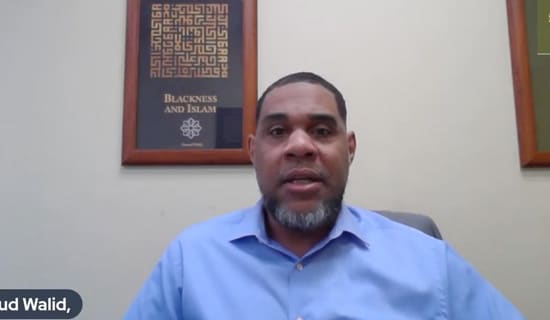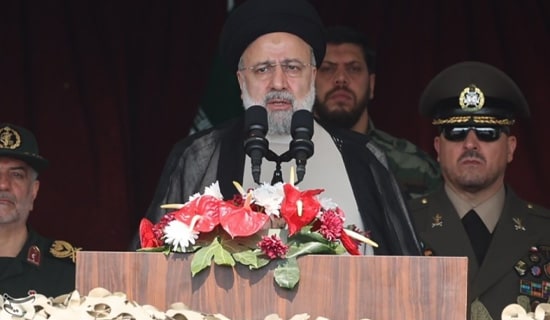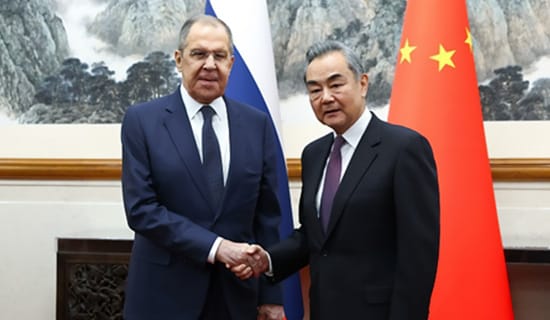The Arab media and specifically, the Iraqi media continue to report on Iraqi preparations for war. Over the past few months, top Iraqi officials have spoken to the Arab media on how the country was preparing for the arrival of the American forces. Now, Iraqi President Saddam Hussein meets with his senior military officers on an almost daily basis to brief them as to what to do when war comes.
Top Iraqi Official: We'll Kill 100,000 Americans As We Killed 100,000 Englishmen
In an interview with the Egyptian opposition weekly Al-Haqiqa, Iraq's Commerce Minister Muhammad Mahdi Salleh said, "Iraq has supplied the Iraqi citizen with means, in advance of the decisive battle in the history of the Arab nation. Five months' worth of provisions have been distributed to the populace. We have also ensured [the provision] of water sources other than the existing water [supply] network which [we] expect to be bombed by the American forces. We have dug wells in every neighborhood of every city… Likewise, weapons have been distributed to the citizens, so that they can confront the Americans…"
"We are ready for war, even though we do not want it. If war breaks out, the fate of the Americans will be the same as that of the English, who lost 100,000 troops on Iraq's land; their cemeteries are scattered across Iraq and have become historic sites…"[1]
In another declaration, in August 2002, Commerce Minister Sallehsaid, "All Iraq scorns the threats. We do not fear America, or Britain, or anyone else. Even if the U.S. comes with all its forces, Iraq will fight this army and make the region a new Vietnam."[2]
President Saddam Hussein himself said that if the Americans send a million troops to Baghdad, "the youth will kill them."[3]
Several months ago, Iraq's Commerce MinisterSallehsaid in an interview with the United Arab Emirates Al-Khaleej daily, "Israel will be struck a blow in its depth if it participates in the war."[4] Following this declaration, Iraqi Deputy Prime Minister Tareq 'Aziz declared in an interview on Iraqi television that Iraq "has no means of attacking Israel… We have no long-range missiles."
Saddam Briefs Iraq's Top Military Brass
Every few days, President Saddam Husseinmeets with his son Qusay Saddam Hussein, the Inspector of the Republican Guards, and with his top military echelons to brief them on preparations for war with the U.S. The Iraqi press subsequently reports these briefings in great detail. In a meeting with the Republican Guard commanders on February 1, 2003, Saddam instructed them to "train, train, train." Similarly, he told them, "Pay attention to the details of the battle and convey my blessings to all the men preparing to destroy, tear apart, and violently beat the enemy, as well as to teach him the hardest of lessons."[5]
Learning the Lessons of the Israeli-Palestinian Fighting
During these meetings, Saddam usually questions the top brass on their preparedness. On one occasion, Saddam asked the Republican Guard commanders: "Are you following the battles between your Palestinian brothers and the Zionist entity? What have you learned from the use the enemy makes of armored vehicles? What technological development do you see they have added to the tanks?"
SUPPORT OUR WORK

The Republican Guard commanders answered him, "Sandbags are placed on the tanks to stop the bullets." "Right," responded Saddam, "This is one means used by the enemy. But what else…? The enemy used its armored vehicles against Palestinians the wrong way… but the enemy introduced a technological development and I ask you, what is it? You said 'sandbags' and that is correct, but what are the details of the armor protecting [the infantry forces]? I want to make sure that you, as armored corps officers, noticed it in order to benefit from it – or perhaps it passed before your eyes on television without you thinking it was important? I noticed it, even though I am not an armored corps officer. I noticed that each enemy tank has a machine gun, and I don't think that each of your tanks has a machine gun?!"[6]
Iraq Will Vanquish America's Technological Superiority
Saddam often uses parables to explain to his officers how to overcome American military superiority. At one recent meeting, he explained: "Assume your neighbor has a rifle and you have only a dagger. If your neighbor [i.e. the Americans] tells you, Get out of your home, register it in my name, and I'm taking your relatives hostage – wouldn't you fight him (even) with your dagger (alone)? What alternative is there when the enemy comes to you and says, I must conquer you? We have no choice but to fight."[7]
At another meeting, a few days later, Saddam gave the men another parable: "Sometimes we see a champion boxer take vicious blows from a man who is not a champion boxer. What is his problem? The point is morale and faith. The latter believes in himself, and with [belief] he will surely win; the former does not believe in himself, and [the shreds] of his belief are undermined by blows from one who isn't a champion boxer. Thus, he is defeated even though he is a champion boxer… True, we do not have the means of the Americans and the British. But our superiority in other things, which we have already mentioned, is clear and decisive – even though they have technical and electronic superiority…"
"If only the English would counsel the Americans regarding what they saw in Iraq in the 1920s! In the past, the English conqueror had machine guns and advanced weaponry, in contrast with what the Iraqi had, because the Iraqi was poor financially. The Iraqis fought the English with poles tipped with balls of tar, and with pronged fishing spears… The Iraqi would jam the fishing spear in the Englishman's chest, recite the words of a popular song… and would then pull the spear out of his chest… The Iraqis defended their land and forced the [British] occupation army to obey their demand for national rule… What I wanted to say was that had the British given faithful counsel to the Americans, they would have told them… that when the Iraqis arose to defend the national honor and the homeland, they vanquished the British army."
"Had [the British] given them [the Americans] this advice, I think they would have earned a reward from Allah and from humanity, and would have opened the Americans' eyes, so they would not keep riding on the back of this crazy mule [i.e. President Bush] as he is called today…"
Later in the meeting, Saddam told the regiment commander to order his troops "not to touch any fragments of the American planes, because we will make use of them."[8]
Confronting the American Assault
In his meetings, Saddam speaks often of the anticipated arrival of the American forces, emphasizing the need to wait until they draw near instead of charging towards them as soon as they land: "[You] must keep your heads at the moment of truth. I know the blood of an Iraqi is hot and his pride is great, and thus he sometimes charges… But this charge might be out of place at the moment of truth… For example, if the enemy appears before you outside the range of the tanks… [you] should wait for the certain moment… and we will fight him. If it happens before that moment, we will suffer losses without hitting him…"[9]
In yet another meeting, Saddam asked his officers what their calculations were regarding confronting American troops when they landed. When he was answered that the attacking units had to be close to the target, Saddam said, "And if they are not close to the target? The enemy will not land in the Baghdad outskirts in order to die, because even if he sends a million [troops to Baghdad], the [Iraqi] youth will kill them… The enemy will land in remote areas, will be filmed [for television], and then its media will begin to say it is situated at such and such a distance from Al-Ramadi or in such and such a place and is on its way to take this or that city… Who told you that that the [Iraqi] force must be close and that we must fill the desert with army [troops] and expose them to enemy fire just to be close?"[10]
[1] Al-Haqiqa (Egypt), January 25, 2003.
[2] Reuters, cited in Al-Bayan (UAE), August 22, 2002.
[3] Al-Jumhouriyya (Iraq), February 1, 2003.
[4] Al-Khaleej (UAE), September 13, 2002.
[5] Al-Thawra (Iraq), February 2, 2003.
[6] Al-Thawra (Iraq), February 2, 2003.
[7] Al-Thawra (Iraq), February 2, 2003.
[8] Al-Jumhouriyya (Iraq), February 4, 2003.
[9] Al-Thawra (Iraq), February 2, 2003.
[10] Al-Jumhouriyya (Iraq), February 1, 2003.




